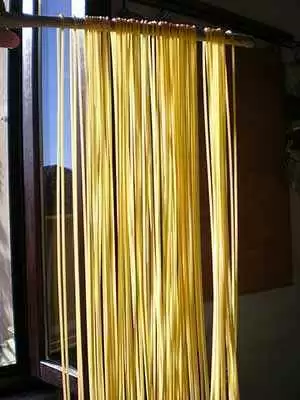Celiac.com 10/03/2014 - Celiac disease patients in Australia have shown a major improvement in gluten tolerance after receiving experimental hookworm treatments. The study is part of an effort to determine if parasitic helminths, such as hookworm, might help to treat inflammatory disorders, including celiac disease.
 In this case, the research team assessed the influence of experimental hookworm infection on the predicted outcomes of three escalating gluten challenges in volunteers with confirmed celiac disease.
In this case, the research team assessed the influence of experimental hookworm infection on the predicted outcomes of three escalating gluten challenges in volunteers with confirmed celiac disease.
Celiac.com Sponsor (A12):
The research team included John Croese, MD, Paul Giacomin, PhD, Severine Navarro, PhD, Andrew Clouston, MD, Leisa McCann, RN, Annette Dougall, PhD, Ivana Ferreira, BSc, Atik Susianto, MD, Peter O'Rourke, PhD, Mariko Howlett, MD, James McCarthy, MD, Christian Engwerda, PhD, Dianne Jones, BHSc, and Alex Loukas, PhD.
They are variously affiliated with the Department of Gastroenterology and Hepatology at The Prince Charles Hospital, Brisbane, Australia, the Center for Biodiscovery and Molecular Development of Therapeutics at the Australian Institute of Tropical Health and Medicine of James Cook University in Cairns, Australia, Envoi Specialist Pathologists in Brisbane, Australia, QIMR Berghofer Medical Research Institute in Brisbane, Australia, the Royal Brisbane and Women's Hospital, and with Logan Hospital, Brisbane, Australia.
This particular study followed twelve adult volunteers with diet-managed celiac disease. The volunteers were inoculated with 20 Necator americanus (hookworm) larvae, and then consumed increasing amounts of gluten in the form of spaghetti.
The volunteers first received 10 to 50 milligrams for 12 weeks (microchallenge); they then received 25 milligrams daily + 1 gram twice weekly for 12 weeks (GC-1g); and finally 3 grams daily (60-75 straws of spaghetti) for 2 weeks (GC-3g).
The subjects were then evaluated for symptomatic, serologic, and histological outcomes of gluten toxicity. They were also examined for regulatory and inflammatory T cell populations in blood and mucosa. Two gluten-intolerant subjects withdrew after micro-challenge. Ten completed GC-1g, and eight of these ten volunteers enrolled in and completed the full course of the study.
Most celiacs who are exposed to gluten challenge will show adverse changes in the intestinal villi, which is measured in terms of villous height-to-crypt depth ratios. Also, such patients will usually show an increase in blood antibodies, such as IgA-tissue transglutaminase, indiucating an adverse reaction to gluten. However, the results here showed that median villous height-to-crypt depth ratios (2.60-2.63; P = .98) did not decrease as predicted after GC-1g. Moreover, mean IgA-tissue transglutaminase titers declined, contrary to the predicted rise after GC-3g.
Other results showed that quality of life scores improved (46.3-40.6; P = .05); while celiac symptom indices (24.3-24.3; P = .53), intra-epithelial lymphocyte percentages (32.5-35.0; P = .47), and Marsh scores remained unchanged by gluten challenge.
Intestinal T cells expressing IFNγ were reduced following hookworm infection (23.9%-11.5%; P = .04), with corresponding increases in CD4+ Foxp3+ regulatory T cells (0.19%-1.12%; P = .001).
Hookworms in the form of Necator americanus promoted tolerance and stabilized, or improved, all tested measures of gluten toxicity in volunteers with celiac disease. So, after being voluntarily infected with 20 hookworms, these celiac disease volunteers were able to eat increasingly large amounts of gluten with none of the usual changes or adverse symptoms.
Could hookworm treatments represent the future of treatment for celiac disease, and maybe other inflammatory conditions? Clearly, further tests are needed to determine exactly how safe it is for celiac patients receiving this treatment to eat gluten. So far, however, the future looks bright.
What do you think? If swallowing a small dose of hookworms would eliminate your adverse reactions, and allow you to safely eat gluten, would you do it?
The radio program Radiolab has an interesting segment on hookworm, which you can stream here: Open Original Shared Link
Source:
- Open Original Shared Link





Recommended Comments